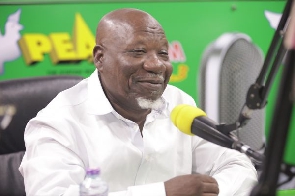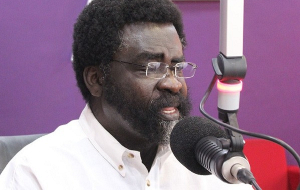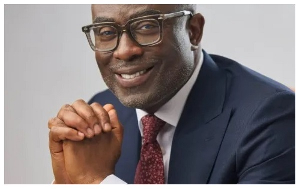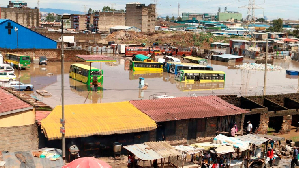Opinions of Friday, 15 December 2023
Columnist: Kweku
Accountability to the dogs; Are Ghanaians urging the OSP to operate in opaqueness?
Recently, the Office of the Special Prosecutor held a press conference to update the public on judicial decisions hindering its lawful duties, including the arrest, investigation, and asset seizure of suspects. This has triggered criticism from both within and outside the government, with concerns that the OSP is becoming too powerful and obstructing the fight against corruption.
The battle against corruption is challenging, requiring a transparent and accountable institution. On December 6, 2023, Allotey Jacobs, former Central Regional Chairman of the opposition National Democratic Congress, criticized Special Prosecutor Kissi Agyebeng for organizing the press conference, questioning the need for it. Instead of questioning, we should ask why not hold a press conference.
The OSP, established by Act 959, is obligated to be transparent, involve Ghanaians in the fight against corruption, and educate them, as outlined in Regulation 31 of LI 2374. Some suggest the Special Prosecutor should only appeal decisions and refrain from commenting. However, appealing may not always be practical, as demonstrated by the case of Col. Damoah (Rtd), where the court struck out adverse findings against him that he deliberately neglected his job which led to corrupt practices at Customs.
The Court said OSP is not a court or commission of enquiry. Meanwhile, OSP law allows the Office to publish detected acts of corruption. Not knowing Damoah was going to contest for the NPP parliamentary seat in Gyaman South in the Bono Region. So, when the court struck out the report against him, it also instructed the OSP to stop investigating him again. Within a month, Damoah was able to contest the primaries and won. What time will the OSP appeal take? Has Col. Damoah not become a Parliamentary candidate already for the NPP? What will
the appeal do? Some will say it has become a foolish case.
Appealing might not be timely as seen in the case of the former Auditor General, Daniel Domelevo who was sacked. It took three years for the Supreme Court to say President Nana Addo breached the constitution by sacking him. But that could not send him back to office. A new auditor General had long been appointed. So yes, appeal is an option but not an end in itself. It can always be resorted to correct some things. But what matters is for all of us to know, speak about it, and get judges especially to appreciate that when you deliver such rulings, it impedes the fight against corruption, so stop it.
Unfortunately, the lack of transparency and accountability in public institutions has become normalized, drawing international attention. The World Bank issued a warning about cutting financial support if reforms addressing transparency and accountability are not implemented. During his press conference, I heard Mr. Agyebeng explain the need to inform the public promptly, balancing transparency, accountability, and national security. He emphasized that this approach aligns with the office's policy and regulations. Regulation 31 of L.I. 2374 mandates the OSP to take corruption prevention steps and provide information to legal entities, educate the public, and publicize detected acts of corruption.
Mr. Agyebeng highlighted concerns during the presser, such as a court's refusal to confirm a freezing order on a deceased person's estate. He stressed the potential dangers of allowing corruptly acquired property to pass on without scrutiny. Critics like Allotey Jacobs should appreciate that the Special Prosecutor's public information decisions are rooted in regulations.
Perhaps, Allotey Jacobs would be comfortable if the Special Prosecutor kept mute about these concerns while he (Allotey) continued to obliviously question: “What at all is the OSP doing?”
"A country without laws or the rule of law is not a country. Law is used to rule a country".
Opinions












